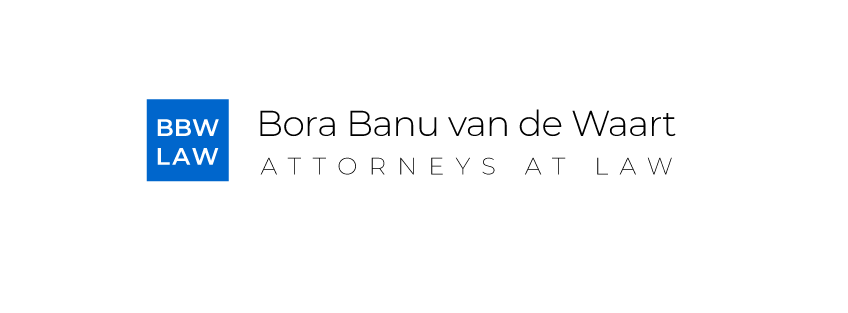Legal News by BBW LAW, July 2022
Mon | 18.07.2022
Legal
LEGAL INSIGHTS
Tips for firing underperforming employees
First, identify WHY the employee is not performing.
The termination process is never pleasant and can get complicated. You must follow the Labour Code and your termination policy carefully in order to avoid litigation.
Is it (A) because the employee does not want to deliver? Or is it (B) because the employee cannot deliver?
Each triggers a different type of dismissal and required steps.
(A) DISCIPLINARY DISMISSAL versus (B) DISMISSAL FOR BEING UNFIT FOR THE JOB
In a nutshell, the main difference between the two types of dismissal is guilt. Unlike in a disciplinary dismissal, there is no guilt in being unfit for the job.
In other words, being unfit for the job is independent of the employee’s guilt (the employee cannot fulfill his job-related duties as they exceed his professional competence), while disciplinary dismissal is built on the employee’s culpable attitude (who is capable to correspondingly fulfill his job duties, but for inherent reasons, he/she does not act accordingly or voluntarily acts in a way contrary to the instructions received from his/her superiors).
The Constitutional Court has held that “being unfit for the job does not identify with disciplinary misconduct; it appears either when new legal provisions come into force and demand additional conditions to the ones initially requested at the moment the employee was hired or as a result of the absence of professional training when the law does not impose a training obligation or as a result of the work capacity’s reduction that appeared during the performance of the employment contract“[1].
Substantiating a case of being unfit for the job means either a lack of knowledge, either an insufficient command of the specific job, profession or activity rules, therefore one must prove the employee’s professional deficiencies and not an accidental or voluntary nonfulfillment of job-related duties. In this latter situation, the employee might be disciplinary sanctioned for the guilt with which he/she acted in that manner.
Another differentiation criterion represents the sustained character of being professionally unfit – in contrast to disciplinary misconduct which represents a standalone act, without excluding the possibility of having a repeated character. Thus, it has been confirmed by case-law that professional inadequacy represents itself a sustained state, continuous, it is not executed uno ictu (i.e in one action), as disciplinary misconduct is, consequently it is not sufficient to prove a single act which may have a professional inadequacy character, but is necessary to prove a sustained behaviour in this manner.
Reasons like the employee’s impossibility to execute entrusted projects, the lack of interest towards job-related duties, the redefinition of the assigned project, delays, the delivery of poor quality works, the lack of preoccupation in improving the level of professional training or the unwilling attitude towards the guidance received and the lack of response towards the warnings received from superiors have been considered in case-law characteristic elements of professional responsibility which, asserted with regard to the employee’s general conduct have led to the admission of being unfit for the job.
DISMISSAL FOR BEING UNFIT FOR THE JOB
According to art. 61 letter d) of the Labour Code, the employer may dismiss for reasons related to the employee’s person […] in case the employee does not professionally correspond to the place of work within which he is appointed. Dismissal for being unfit for the job may be decided only after a preliminary professional appraisal of the employee, to be performed in accordance with the evaluation procedure established by the applicable collective bargaining agreement or, in its absence, by the internal regulation (art. 63 par. (2) of the Labour Code).
In the absence of an applicable collective bargaining agreement, the professional appraisal is performed according to the procedure set forth within the internal regulation and based on the duties regulated within the job description, the evaluation criteria of the professional activity and based on the performance objectives established by the employer.
The professional appraisal procedure must allow the employee to argue his acts, his actions of professional inadequacy, in order for the employer to know all the circumstances which have determined the subsequent nonfulfillment of job-related duties. Professional knowledges, aptitudes and performances need to be assessed concretely, with regard to the job position’s duties and requirements, as well as with the job position’s role and place within the activity performed within the unit.
The dismissal decision must be issued within 30 calendar days starting from the moment the dismissal reason was ascertained. The term is calculated from the date the employer took knowledge of the decision which ascertained the professional inadequacy as a result of the preliminary appraisal procedure.
The Employer must propose the Employee other vacant positions within the Company, compatible with his professional training or, if there are no vacant positions, to solicit the support of the territorial employment agency with the scope of redistributing the Employee
DISMISSAL FOR DISCIPLINARY REASONS
Dismissal for disciplinary reasons represents the most severe sanction that can be used in case the employee has committed a gross or repeated misconduct from work discipline’s rule or from those established within the individual labour agreement or internal regulation.
The Labour Code does not list the actions which may constitute disciplinary misconduct; those, together with the applicable sanctions must be established within employer’s internal regulation. Also, the internal regulation is the one that must qualify the action that represent gross misconduct, in the context in which only these could sustain directly a disciplinary dismissal. For the misconducts that do not qualify as gross misconduct, in the first phase one should impose a less important sanction, and only in a second phase it would be possible to retain a disciplinary dismissal for repeated misconducts.
The disciplinary sanctions can be imposed only after a preliminary disciplinary investigation was held according to the disciplinary investigation procedure set forth by the Labour Code and completed, if the case, with the specific regulations within the Internal regulation. In case this procedure is chosen we will prepare a calendar with the disciplinary investigation steps in which we will introduce the relevant terms.
On the merits, the disciplinary misconduct is analyzed within the disciplinary investigation with regard to (i) the circumstances in which the action was committed, (ii) the employee’s degree of culpability, (iii) the consequences of the disciplinary misconduct, (iv) the employee’s general behaviour at work and (v) the eventual disciplinary sanctions suffered previously.
The disciplinary sanction is established through a sanctioning decision / dismissal decision issued in a period of 30 calendar days starting from the day of acknowledgement of the disciplinary misconduct but no longer than 6 months since the date of such misconduct has been committed. The 30 days term is calculated from the date of registration of the final report of the preliminary disciplinary investigation at the Company’s registry.
LEGAL NEWS
New building permit terms
Law 50/1991 on the authorisation of construction works was amended as of 13 June 2022 by way of Law 176/2002. The amendments target the following terms:
- the initial building permit duration may now be extended only once, for an extra period of no more than 24 months (instead of 12 months, as before).
- the requests for extending the building permit duration are to be submitted earlier – with at least 45 business days before expiration of the building permit (instead of 15 business days, as before);
- the building permits which have only 30 days left until their expiration on the date these amendments enter into force (13 June 2022) are automatically extended with an extra 90 days.
Government cloud
As of 28 June 2022, the Romanian Government has passed Emergency Ordinance 89/2022 that puts in place a government cloud.
The cloud will host the IT systems of the central public institutions. This will ensure the interoperability of databases between state institutions.
Any citizen will be able to see what institution, when, and for what purpose, has accessed his/her data.
E-invoice
Beginning 1 July 2022, certain taxpayers will have to adhere to the e-invoice. The main goal is to prevent tax fraud and smuggling.
- Taxpayers established in Romania will be required to issue e-invoices for the B2G (Business to Government) transactions via the RO e-Factura platform.
- Taxpayers trading in high-risk fiscal products in the B2B (Business to Business) relationship will also have to exchange electronic invoices via the national platform.
- Taxpayers trading in high-risk fiscal products will be required to use the RO e-transport system to monitor the transport of these products.
ANAF has defined high-risk products as of now (could be extended in time):
- Vegetables, fruits, roots, edible tubers, other edible plants
- Alcoholic beverages
- Mineral products (eg. sand, mineral water, etc.)
- New buildings
- Clothing and footwear
ANAF stated that this list will be updated, and it seems highly probable that it will be extended to other products in time.
Combating speculative actions during crisis
The Romanian government has recently adopted Government Emergency Ordinance 84/2022 on combating speculative actions and amending and supplementing certain normative acts. It will enter into force before the end of July 2022.
- In times of mobilisation of armed forces, state of war, siege, emergency or alert, and other times of crisis as specifically defined by the authorities, the government may issue a decision designating certain products or services as being under speculative risk and potentially affecting the proper functioning of the economy and well-being of consumers. Such government decisions are issued for a period of six months and may be extended as long as the relevant circumstances persist.
Speculative actions under the GEO:
- setting unjustifiably high prices;
- limiting production and sales unjustifiably;
- hoarding goods from the external or internal market to create scarcity on the Romanian market, and reselling them at an unjustifiable higher price.
Superior bargaining position (SBP)
GEO 84/2022 has introduced sanctions for SBP abuse. Previously, we were only dealing with sanctions for abuse of a dominant position (above a 40% market value).
SBP entails the position of an entity not dominant according to Romanian competition legislation, a position that is determined by market features, favouring the appearance of significant imbalances generated by factors like (i) the specific structure of the production or distribution chains, (ii) vulnerability towards external factors, (iii) perishability or seasonality, and the specific relation between this undertaking and other undertakings active on different markets.
A company may be sanctioned if (a) it holds a SBP, (b) abuses its SBP and (c) the case is of public interest and affects the market.
Any acts of unfair competition affecting the public interest, including the abuse of SBP, are sanctioned:
– with a fine between RON 50,000 (approx. EUR 10,000) and RON 500,000 (approx. EUR 100,000) for acts committed by entities;
– with a fine between RON 5,500 (approx. EUR 1,100) and RON 11,000 (approx. EUR 2,200) for breaches by individuals.
Large entities should integrate SBP rules in their policies.
This article is provided by our Legal Partner BBW LAW l BORA BANU van de WAART.
2025
-
November (1)
-
October (1)
-
September (1)
-
July (1)
-
June (1)
-
April (1)
-
February (2)
-
January (1)
2024
-
November (1)
-
October (1)
-
July (1)
-
May (1)
-
March (1)
-
February (1)
-
January (1)
2023
-
November (1)
-
September (2)
-
August (2)
-
June (1)
-
May (1)
-
April (2)
-
March (1)
-
February (2)
-
January (2)
2022
-
December (3)
-
November (4)
-
October (3)
-
September (4)
-
August (3)
-
July (6)
-
June (4)
-
May (4)
-
April (8)
- Marketing News by diARK - April 2022
- Finance News by Mazars Romania - April 2022
- Experience the Perfect Chauffeur Transfer with David Intercar
- Mobility News by Business Lease - April 2022
- NRCC MEMBER IN SPOTLIGHT, WOLTERS KLUWER
- Crowe Romania and DeclaratiaUnica.ro engage in the automation of the single return form and the offering of personalized consultancy
- Cryptocurrency News by Bitcoin Romania, April 2022
- Legal News by BBW LAW - April 2022
-
March (6)
-
February (4)
-
January (5)
2021
-
December (3)
-
November (4)
-
October (2)
-
September (2)
-
August (1)
-
July (5)
-
June (3)
-
May (5)
-
April (4)
-
March (7)
- Cryptocurrency News by Bitcoin Romania, April 2021
- HR News by CNA International Executive Search Romania, March
- Real Estate News by CTP Invest, March 2021
- Sale-Purchase of Agricultural Land Located Outside Build-Up Areas
- MEET THE NRCC BOARD CANDIDATES 2021
- Fleet Management – Complete Makeover or Small Adjustments?
- Cryptocurrency News by Bitcoin Romania, March 2021
-
February (5)
-
January (6)
2020
-
December (2)
-
October (2)
-
September (3)
-
August (2)
-
July (6)
- NRCC Member in Spotlight Interview - Autonom
- Insolvency Proceedings: New Rules
- Member in Spotlight, UniCredit Bank
- Financing opportunities overview for large enterprises, SMEs and other organizations
- Companies: Simplification of Formalities
- Call for Leaders | What is your readiness score to benefit from the EU SURE initiative?
-
June (5)
-
May (8)
- The State of Alert. New rules for the collective proceedings
- The Retail Industry
- EU grants up to 6 Mil Euro for SME-s investment projects
- Member in spotlight, Heisterkamp Transportation Solutions
- State of Alert...What Is New
- The forced transformation of the automotive industry – Mazars analysis
- State of Alert in Romania
- Reducing the Impact of the Pandemic
-
April (6)
-
March (2)
2019
-
November (2)
-
July (1)
-
June (1)
-
March (2)
-
January (1)
2018
-
October (2)
-
September (1)
-
August (1)
-
July (3)
-
June (2)
-
May (1)
-
April (1)
-
March (3)
-
February (13)
- NRCC Elections 2018 - Elena Badea
- NRCC Elections 2018 - Loreda Dragomir
- NRCC Elections 2018 - Simina Fodor
- NRCC Elections 2018 - Manuel Herraiz Orti
- NRCC Elections 2018 - Tom Leene
- NRCC Elections 2018 - Mircea Moga
- NRCC Elections 2018 - Ronald Oort
- NRCC Elections 2018 - Razvan Pascu
- NRCC Elections 2018 - Alexandru Popescu
- NRCC Elections 2018 - Mihaela Tudor
- NRCC Elections 2018 - Loredana Van de Waart
- NRCC Elections 2018 - Edwin Warmerdam
- NRCC Elections 2018 - Philip Aarsman
2017
-
November (1)
-
September (1)
-
August (2)
-
May (1)
-
April (2)
-
March (1)
2016
-
November (1)
-
September (8)
-
June (1)
-
February (2)








